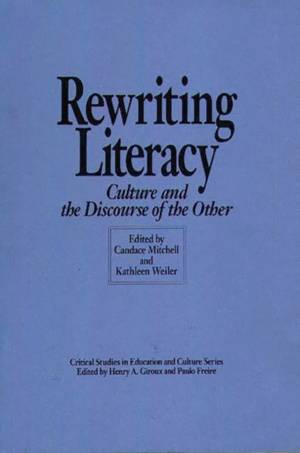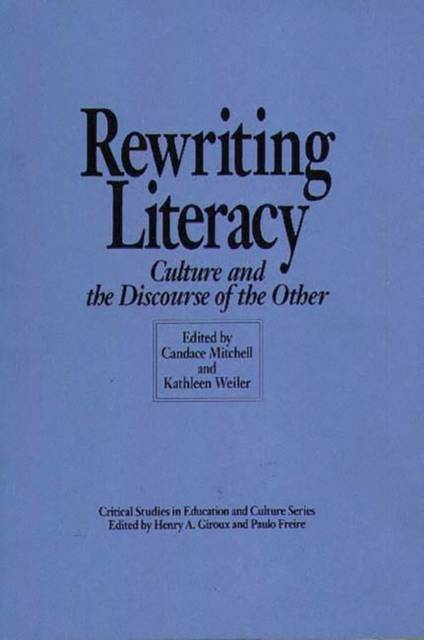
- Retrait gratuit dans votre magasin Club
- 7.000.000 titres dans notre catalogue
- Payer en toute sécurité
- Toujours un magasin près de chez vous
- Retrait gratuit dans votre magasin Club
- 7.000.0000 titres dans notre catalogue
- Payer en toute sécurité
- Toujours un magasin près de chez vous
161,45 €
+ 322 points
Format
Description
Rewriting Literacy makes a profound contribution to the developing field of literacy studies as it is the first book which seeks to link such disciplines as linguistics, sociolinguistics, anthropology, education, English as a second language, and reading and writing theory.
The chapters in this edited collection, by some of the foremost scholars of the day, all focus on the nature of literacy. Each article brings to light important concerns regarding literacy, concerns which are often ignored by the more traditionally oriented educationalist. The authors illustrate how literacy is embedded in a social and cultural context bringing into question the very nature of what it means to be literate. Each piece highlights, either implicitly or explicitly, the highly political nature of literacy and in doing so approaches the study of literacy from a critical and pedagogical perspective. The body of work presented in this volume is relevant not only to individuals whose main focus is on the area of literacy studies, but to all those concerned about minority disenfranchisement, institutional inequity, and the political, cultural, and social dimensions of education.Spécifications
Parties prenantes
- Auteur(s) :
- Editeur:
Contenu
- Nombre de pages :
- 312
- Langue:
- Anglais
- Collection :
Caractéristiques
- EAN:
- 9780897892254
- Date de parution :
- 30-12-91
- Format:
- Livre relié
- Format numérique:
- Genaaid
- Dimensions :
- 156 mm x 234 mm
- Poids :
- 612 g

Les avis
Nous publions uniquement les avis qui respectent les conditions requises. Consultez nos conditions pour les avis.






